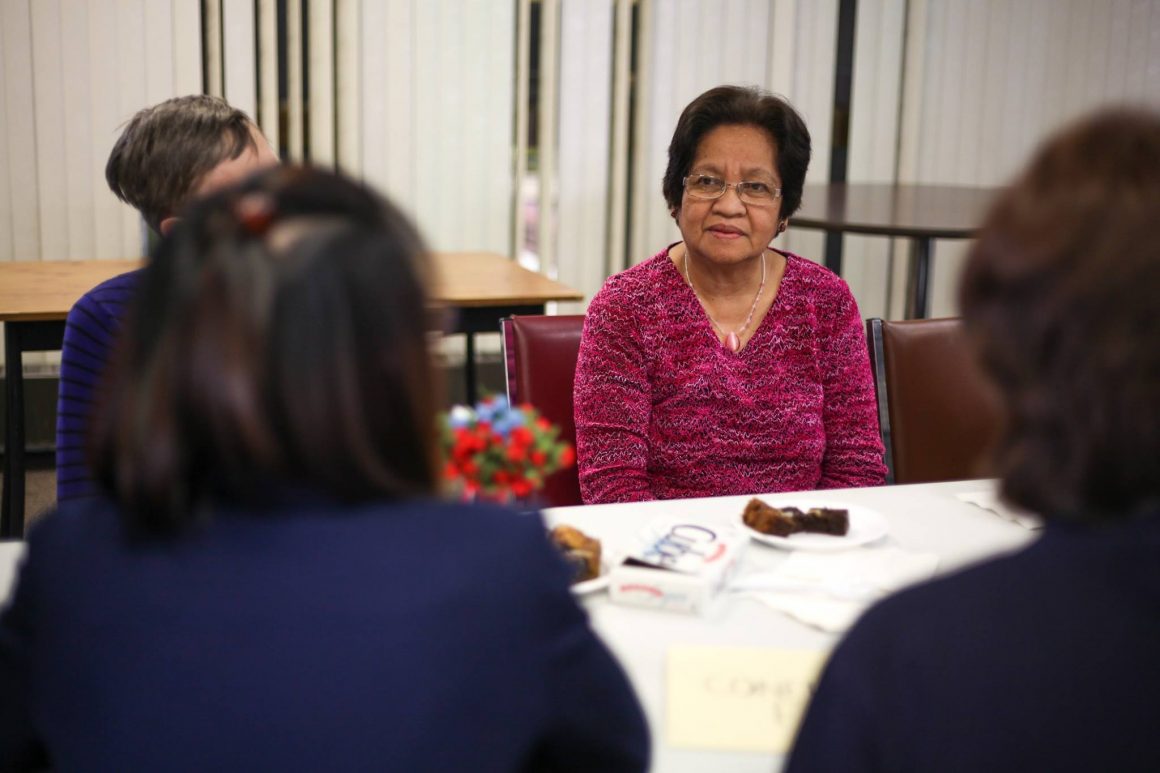
Photovoice Exhibit: Life on $1,400/month
By Mitali Pradhan, October 20 2019—
On Monday, Oct. 7, the Faculty of Social Work hosted a photovoice research presentation at the National Music Center. A total of 11 portraits were showcased, one for each senior immigrant. Through the portraits, four main themes were identified: Financial Realities of Older Immigrants, Understanding Financial Literacy, Building Community, and Continued Work Despite Retirement. The presentation focuses on financial literacy in older immigrants, defined as the ability to navigate financial systems and banks.
“This project provides more complexity and nuance to that definition. It’s not necessarily just about how to budget how to save about how to do online banking,” stated Ilyan Ferrer, an assistant professor in the Faculty of Social Work. “It is more about intergenerational engagements, transnational responsibility and also structural barriers imposed in immigration.”
The photos, taken by senior immigrants, capture their relationship with money. Many older immigrants, despite being well educated, cannot find employment due to their certifications not transferring over. Raj, a pseudonym used for a 60-year old immigrant from Nepal, despite being an engineer back home cannot find employment in Canada. The failure to recognize credentials and meaningfully engage in the economy has a profound impact on older immigrants.
These issues are increased by the 20-year dependency period. When adult children sponsor their parents to immigrate to Canada, they take on financial and social responsibility for a period of 20 years. The senior immigrants do not have access to pension programs. The project found cases, such as Helen’s, where the seniors would not have enough money to buy necessary products and be forced to ask their adult children for money.
“Because of the 20-year dependency, there is so much power given to the child that it can make for difficult conversations,” stated Ferrer.
Around 2014–2016, consultations for helping older immigrant communities came to the conclusion that the dependency period must be shortened and the financial restrictions must be reduced. However, the opposite happened and the dependency period was increased.
“This is an important juxtaposition between policy and how we look at financial literacy and what the older adults themselves are saying,” said Ferrer.
The perception that older immigrants are a drain on social services is prevalent despite their contributions towards building local communities, providing childcare and being cultural stewards. According to Ferrer, the aim of this project was to shed light on immigration programs and the message is for society to recognize the contributions that older immigrants make.
Moving forward, Ferrer states that it is important to remove structural financial barriers such as the dependency period, recognize credentials to allow for meaningful engagement in the labour market and amplifying people’s stories.
